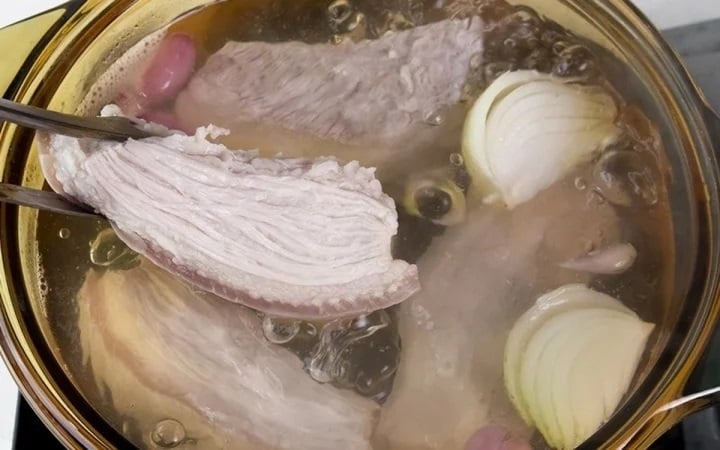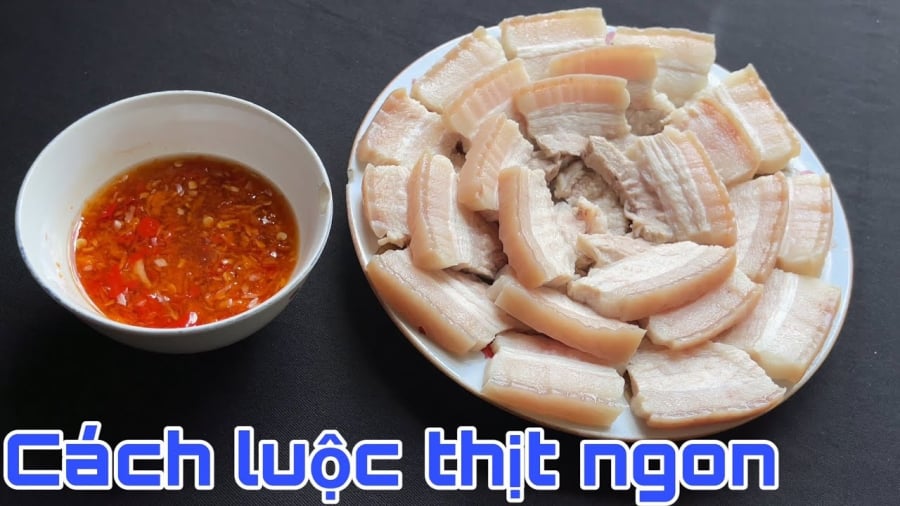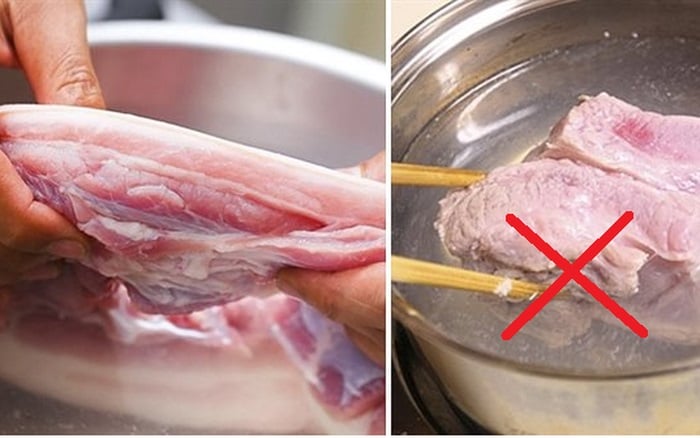1. The Truth Behind Parboiling Meat
Parboiling meat is a common practice among many Vietnamese families before cooking. It is believed that this method helps remove impurities, odors, chemicals, and excess blood from the meat. However, according to nutrition and food safety experts, parboiling meat can be counterproductive if not done correctly, causing the meat to absorb more impurities.

Parboiling Meat: A Counterproductive Method for Cleanliness
When meat comes into contact with boiling water at high temperatures, the protein on the surface coagulates rapidly, forming a membrane. This membrane prevents the escape of residual impurities and chemicals, and it may even cause the meat to absorb impurities from the parboiling water.
2. Why Is the Common Parboiling Method Unsafe?
- Boiling water does not eliminate all bacteria: Harmful bacteria such as Salmonella or E. coli are only completely destroyed when cooked at temperatures between 70-100°C for an extended period. Parboiling is insufficient to kill these bacteria.
- Chemicals can seep into the meat: If the parboiling water is not clean or contains chlorine residues, these chemicals can easily penetrate the meat when the protein membrane is not fully formed.
3. For Cleaner and More Nutritious Meat: Do It Right with the Right Ingredients
3.1. Use Ginger and Salt for Pre-treatment
- Benefits: Ginger has natural antibacterial properties, helping to eliminate odors and some surface bacteria. Salt also aids in cleaning and tenderizing the meat.
- Method:
- Rinse the meat under running water to remove excess blood.
- Boil water with a small amount of crushed ginger and salt.
- Place the meat in the boiling water for about 1-2 minutes, then remove and rinse with clean water.
3.2. Add Lemon or Vinegar to the Parboiling Water
- Benefits: Lemon and vinegar have mild acidic properties, helping to remove impurities, fishy odors, and reduce chemical residues.
- Method:
- After a preliminary rinse, boil the parboiling water with a few slices of lemon or a spoonful of vinegar.
- Parboil the meat for about 2 minutes, then remove and rinse before cooking as desired.

The Right Way to Boil Pork: White, Crisp, and Delicious
3.3. Combine Green Tea Leaves or Lemongrass for Enhanced Cleanliness and Flavor
- Benefits: Green tea and lemongrass are effective in odor removal and impart a natural fragrance to the meat.
- Method:
- Boil water with green tea leaves or lemongrass stalks.
- Parboil the meat in this water, ensuring that the water is not too vigorously boiling to prevent nutrient loss.

A Simple Way to Clean Pork
4. Important Notes When Pre-treating Meat
- Choose fresh meat: Fresh meat has a bright pink color, no strange odors, and good elasticity. Even with thorough parboiling, low-quality meat may still pose health risks.
- Do not reuse parboiling water: Parboiling water contains many impurities and bacteria, so it should never be used for cooking soups or other dishes.
- Do not parboil for too long: Prolonged parboiling not only leads to nutrient loss but also makes the meat dry and tough.
5. Benefits of Proper Pre-treatment
- Retains nutrients: Meat that is properly pre-treated retains essential proteins, vitamins, and minerals.
- Ensures food safety: Thorough pre-treatment eliminates impurities and bacteria, reducing the risk of food poisoning.
- Enhances flavor: Clean and well-prepared meat tastes better when cooked.





































